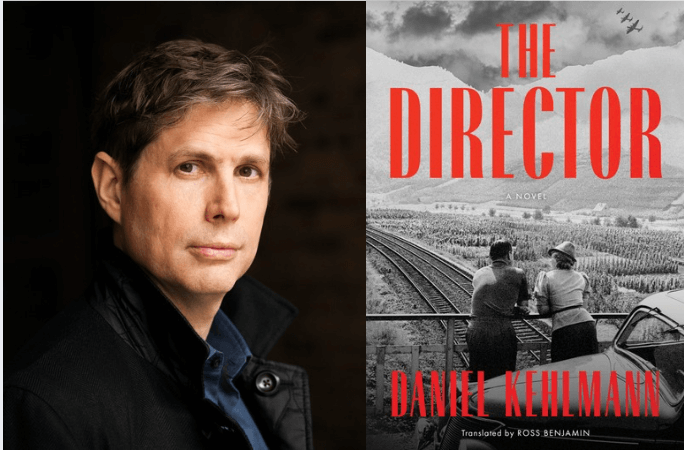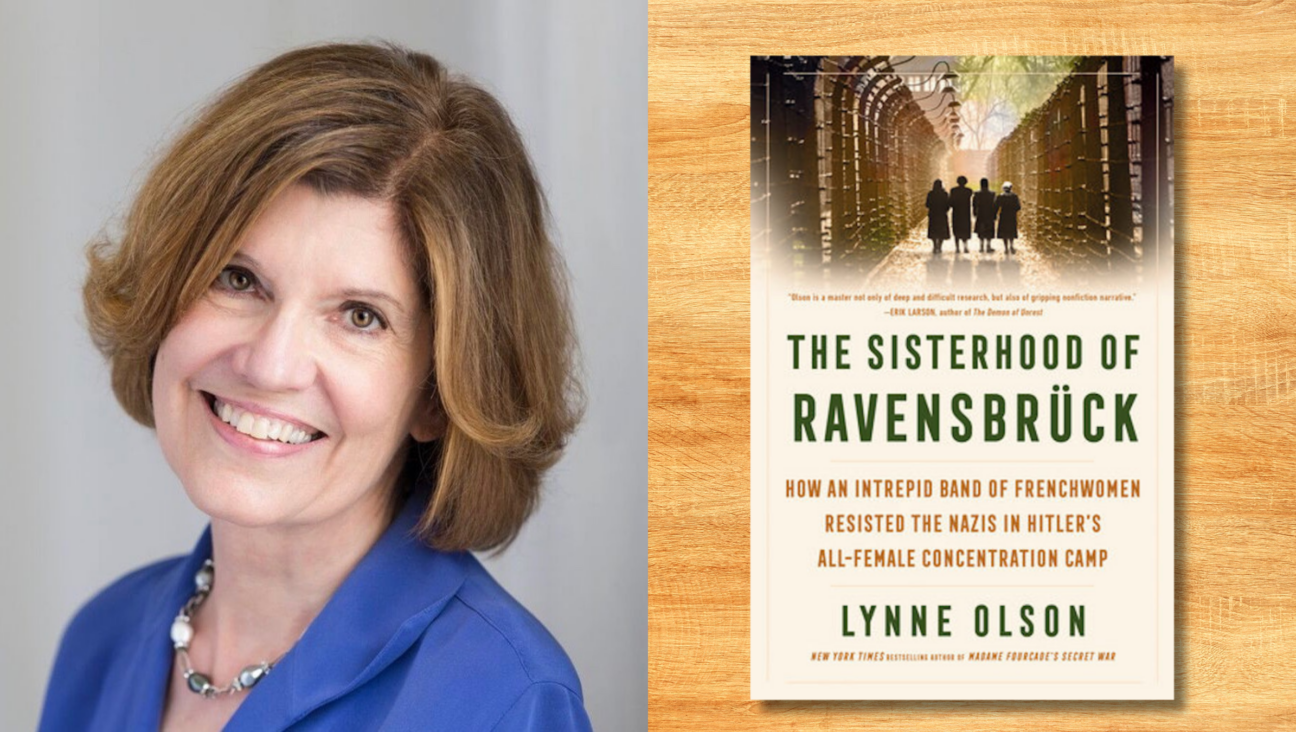Amazon is Opening Brick and Mortar Bookstores; Our Sages Would Approve

Image by Getty Images
At a pivotal moment in Thomas Mann’s The Magic Mountain, Hans Castorp is seen lugging around heavy, expensive, newly purchased books. When his cousin Joachim wonders why Hans doesn’t simply borrow books from the local library, Hans explains that there is no substitute for the purchased book: Hans “loved to mark [his books] and underline passages in pencil.” Hans Castorp understood what all booklovers understand: “it was quite a different thing to read when the book was one’s own.”
Those of us who are anything like Hans Castorp were thus overjoyed to learn that Amazon will be opening 300 to 400 walk-in bookstores. It has already opened two bookstores, in Seattle and San Diego, and will soon be opening a third in Portland, OR, called “Amazon Books.”
Since Borders closed in 2011, Barnes & Noble has been the last surviving big chain bookstore. But Barnes & Noble has been plagued by the same troubles that eventually caused the closure of Borders—namely, competition from Amazon. Which is what makes Amazon’s decision to open hundreds of physical bookstores so intriguing: Amazon’s announcement gives the lie to all those who say that it is possible to perpetuate a book culture without good, old-fashioned, physical bookstores.
The futurists and the brick-and-mortar bookstore naysayers say that what we are witnessing is a classic case of “creative destruction”: in a capitalist economy, the wages of (financial) sin is bankruptcy, and we should thus be content to let the erring economic sisters go in peace; if they cannot compete with online booksellers, we should stoically accept the blind judgment of the gods of the marketplace. After all, if the computer caused the obsolescence of the typewriter and the automobile rendered the horse and buggy superfluous, we need to prepare ourselves to live in a world in which books are no longer bought by plucking them off of shelves but by turning on your computer browser’s option for 1-Click ordering. (Because in the Fast Food Age, two clicks would be much too much effort.)
But this is the wrong way to look at bookstores. Bookstores are not technological tools, standing ready to be replaced by the latest industrial enhancements. Bookstores are centers of culture, conveying wisdom, understanding, and literary enlightenment through aesthetically pleasing salesmanship and visually appealing presentation. You can sell books everywhere, but you cannot convey a love of books just anywhere.
Bookstores—of the “tangible-interactive-peopled-and-shelved” variety, let’s please eliminate the ugly term “brick-and-mortar”—are absolutely irreplaceable. Libraries are essential, but they are not sufficient. In the chaotic Fast Food Age of Twitter, Facebook, and the six-second attention span, with the myriad of entertainment options that books have to compete against, we need to be seduced into reading. We all know that reading is important, and we all know that books are the gateways to wisdom, knowledge, and understanding. But in the Distracted Age, how do you get people to enter a gateway whose pleasures cannot be immediately attained? Here is where bookstores enter the picture.
Libraries are critical storehouses of information, but because they are not trying to sell books, they tend to neglect critical aesthetic factors like the color arrangements of books, the artistic configuration of shelves, and the alluring additions of music and comfortable chairs which seduce us into buying books. (The pleasant aromas of freshly brewed coffee and scrumptious pastries don’t hurt, either.). But bookstores are trying to seduce, because they have to sell us books. And so the design of bookstores, the layout of sections, and the appealing presentation of books are all crucial for bookstores; because as in biology, so too in literature: for the sake of the propagation of the next generation and the perpetuation of the species, we must be seduced with easy pleasures in order to be led into the difficult (but ultimately more rewarding) pleasures of the literary life.
Even in Judaism, a civilization which prizes learning and literacy perhaps more so than any other culture, our sages have realized that it is necessary to seduce potential readers to the charms of intellectual pleasures through the means of bodily, even gustatory pleasures. The Sefer Harokeach, Machzor Vitri and others recount that when teaching young children to learn how to read, it was customary to place honey on the letters of the Hebrew alphabet for the children to lick and to give them honeyed cakes with Bible verses written on them, thereby leading them to associate reading with sweetness and pleasure. (For more on these literacy-initiation ceremonies, see Ivan G. Marcus, Rituals of Childhood: Jewish Acculturation in Medieval Europe.) And in order to get little children to stay awake during the Passover Seder, perhaps the most important ritual event of the Jewish year—important because it is during the Seder when the Jewish values of literacy and the love of learning are most strongly and vividly conveyed—the Talmudic sage Rabbi Akiva gave children sweet treats like “parched wheat and nuts” (Babylonian Talmud, Pesachim 99a; cf. ibid., 108b); in modern times, children are probably thankful that these “treats” have been upgraded to the things that kids most want: candy and chocolate. (As another wise Jewish sage once said, “candy was my whole life when I was a kid. The first ten years of my life, I think the only clear thought I had was: get candy.)
Moreover, one of the greatest scholars in Jewish history became who he was because he was literally seduced into a love of learning—not with candy, but arguably with the thing that adults most want. According to the Talmud (Bava Metzia 84a), Shimon ben Lakish, a gladiator who made his living as a bandit, once saw the handsome Rabbi Yochanan bathing in the Jordan River.
“You have the beauty of a woman!” Shimon remarked to the rabbi.
“My sister is even more beautiful than I am,” said the rabbi to Shimon. “If you repent and use your strength to study Torah instead of using it for highway robbery, I’ll let you have my sister as a bride.”
Shimon consented. He married Rabbi Yochanan’s sister, became his chevrusa (study partner), and went on to become “Resh Lakish,” one of the greatest rabbinic sages in the Talmudic canon.
Without interactive, tactile, tangible, beautifully designed bookstores around to seduce us into a love of learning—to arouse our desire with attractive hardcovers, supple softcovers, and plush full tomes adorned with alluring lighting and glowing colors—we run the risk of sacrificing our literary and scholarly posterity upon the altar of economic efficiency.
A world without bookstores would be a world without a literate culture. And such a world, as Mario Vargas Llosa reminds us, would be a terrifying one:
Literature’s unrealities, literature’s lies, are a precious vehicle for the knowledge of the most hidden of human realities. The truths that it reveals are not always flattering; and sometimes the image of ourselves that emerges in the mirror of novels and poems is the image of a monster. … It was not science that first ventured into these tenebrous places in the human mind …. It was literature that made this discovery. A world without literature would be partly blind to these terrible depths, which we urgently need to see.
And a world without literature, continues Vargas Llosa, would be an impoverished, less just, less humane world:
_Literature has been, and will continue to be, as long as it exists, one of the common denominators of human experience through which human beings may recognize themselves and converse with each other, no matter how different their professions, their life plans, their geographical and cultural locations, their personal circumstances. It has enabled individuals, in all the particularities of their lives, to transcend history: as readers of Cervantes, Shakespeare, Dante, and Tolstoy, we understand each other across space and time, and we feel ourselves to be members of the same species because, in the works that these writers created, we learn what we share as human beings, what remains common in all of us under the broad range of differences that separate us. Nothing better protects a human being against the stupidity of prejudice, racism, religious or political sectarianism, and exclusivist nationalism than this truth that invariably appears in great literature: that men and women of all nations and places are essentially equal, and that only injustice sows among them discrimination, fear, and exploitation.
The brotherly link that literature establishes among human beings, compelling them to enter into dialogue and making them conscious of a common origin and a Common goal, transcends all temporal barriers. … This feeling of membership in the collective human experience across time and space is the highest achievement of culture, and nothing contributes more to its renewal in every generation than literature._
A world without literature, in short, is a world in which none of us would want to live. If we do not want to live in a world without literature, we need to ensure that we cultivate the next generation of passionate book lovers. And in order to do so, we need to think about our bookstores—our hubs of bibliophilic bliss—the same way we think about our ecosphere: we must be prepared to invest in their preservation. We treasure our earthly environment, but what are we doing to ensure its preservation? We love pandas, but what are we doing to ensure their survival? What are we doing to ensure the vibrancy of our literary culturosphere? We need to be prepared to spend a few dollars more to buy a book in a walk-in bookstore instead of spending a few dollars less to buy it online. I love buying books on Amazon.com as much as anyone, but if our craving for convenience is coming at the price of the preservation of our bookstores, then this is a price too high to pay.
Or, think about it in terms of food. We all know about the importance of healthy eating, and we understand that spending a few dollars more today for fresh fruit and vegetables will save many medical costs incurred tomorrow for treating obesity-related health problems. If we don’t spend more money to support bookstores like Barnes & Noble today, we’ll be facing a mentally obese culturosphere tomorrow: a culture deprived of the essential intellectual nutrients that only a deep engagement with the great works of literature, science, philosophy and history can provide.
Toward the end of Gabriel García Marquez’s Cien Años de Soledad (One Hundred Years of Solitude), the wise Catalonian whose bookstore the second Aureliano used to frequent leaves Macondo and travels back to his Mediterranean home. When the railroad inspectors want to place his boxes of books in the freight department, the wise Catalonian howls in protest: “El mundo habrá acabado de joderse el día en que los hombres viajen en primera clase y la literatura en el vagón de carga.” “The world must be all @#$%^& up when men travel first class and literature goes as freight.” Let us pray that we do not see the day when men travel first class and literature goes as freight—let’s support Barnes & Noble and let’s buy our books at Amazon’s physical bookstores. Let’s save our bookstores and ensure the perpetuation of our fragile, vital, irreplaceable literary culturosphere.























